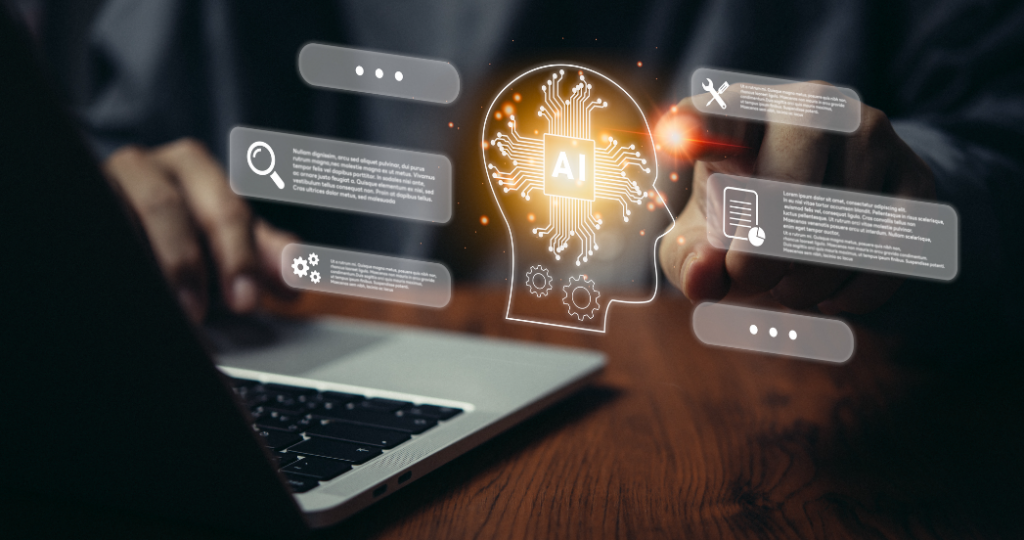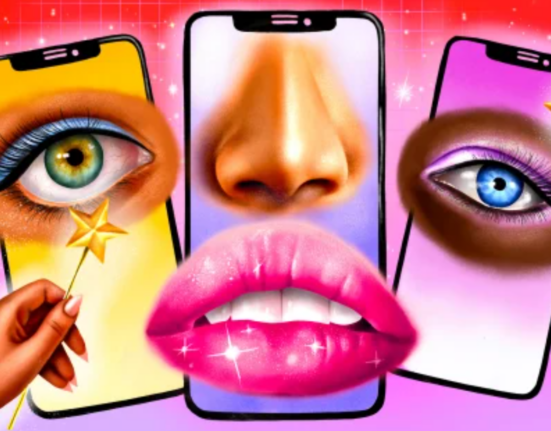Last Updated on October 11, 2024 by Rachel Hall
- How AI Dating Advice Can Help You Gain Its Insights and Transform Your Love Life: What Really Happens
- 1. AI Offers Data-Driven Life Advice That’s Tailored to You
- 2. How AI Helps You Identify Communication and Conversation Issues Signs Early On
- 3. Gain Deeper Insights into Your Relationship Habits
- 4. AI Can Help You Gain Confidence and Recognition in Dating
- 5. AI Helps You Understand Your Partner’s Perspective Today
- 6. AI Provides Easy Access to Crucial Real-Time Relationship Coaching
- 7. How AI Helps You Recognise and When You Need Human Intervention and Encourage You
- Conclusion: Why AI Dating Advice is the Future of Relationships and Why it Actually Might Help
How AI Dating Advice Can Help You Gain Its Insights and Transform Your Love Life: What Really Happens
In today’s world, where technology shapes every aspect of our lives, AI is becoming an increasingly important tool—even in the realm of dating advice. Imagine getting personalised, data-driven insight into your relationship dynamics without the need to visit a hospital or consult a therapist. Tools like ChatGPT have made this possible by allowing users to gain unique perspectives into their relationships and how they can improve their love lives.
So, what makes it so effective at giving advice, and how can you use it to gain its insights to enhance your relationships? Let’s dive into the real power of AI-driven dating advice and explore the 7 surprising ways it can change your dating life for the better.
1. AI Offers Data-Driven Life Advice That’s Tailored to You
One of the most powerful aspects of AI is its ability to provide personalised advice based on the data it gathers from your interactions. Unlike traditional human counsellors, it doesn’t just offer generalised advice. Instead, it uses advanced algorithms to analyze past conversations, emotions, and behavioural patterns. With this analysis, tools like ChatGPT can help you navigate challenges in a relationship by offering tailored advice.
For example, it can track how often you initiate conversations versus your partner and identify whether you tend to dominate discussions or let misunderstandings linger. These insights are not based on guesswork; they are based on real data that reflects your unique circumstances. This level of recognition allows you to address problems with precision and effectiveness.
Consider the case of a couple struggling with communication. It can identify when one partner tends to interrupt or avoid difficult subjects and suggest strategies to deal with these habits. By offering specific solutions, it enables you to make tangible changes in how you engage with your partner—all in real-time.

2. How AI Helps You Identify Communication and Conversation Issues Signs Early On
Communication is often the most challenging part of any relationship, and the ability to identify issues early on can make a world of difference. This is where such tools truly shine. They can identify subtle shifts in tone, word choice, and conversational flow that humans might miss, providing early warnings that can save a relationship from unnecessary conflict.
For instance, if your partner is starting to feel disconnected or if you’re having trouble expressing your emotions, it can spot these patterns. It might prompt you with questions to dig deeper into what’s going on, or it may suggest better ways to phrase a difficult conversation. This early intervention can prevent arguments and misunderstandings from escalating into major problems.
A real-life example would be using an AI-powered chatbot to monitor your text exchanges with your partner. If the conversation suddenly becomes shorter or more distant, it might suggest that something is amiss, allowing you to address the issue before it becomes a major point of contention. The power of these tools lies in its ability to highlight issues that are too small for us to consciously recognise, yet important enough to change the course of a relationship.
3. Gain Deeper Insights into Your Relationship Habits
One of the most surprising benefits of using AI for dating advice is its ability to provide insights into your habits and behaviours. Often, people get stuck in negative patterns without even realising it. It can help you recognise these behaviours by offering an objective perspective on your actions.
For example, are you the type of person who shuts down during a disagreement? Or do you tend to allow your partner to dominate conversations without standing up for your needs? It can analyse your interactions and help you become more self-aware, which is crucial for making improvements in your relationship.
Using these tools in this way is like having a mirror that shows you aspects of your personality and communication style that you may not have noticed. This deeper insight allows you to make meaningful changes in how you engage with your partner. And because it provides real-time feedback, you can implement changes immediately and see how they affect the relationship.
4. AI Can Help You Gain Confidence and Recognition in Dating
Dating can be intimidating, especially when you’re not sure how to approach a situation or start a conversation. This is where AI can help boost your confidence. By providing actionable advice, tools like ChatGPT can help you feel more prepared and less anxious about interactions.
For example, a tool might suggest icebreakers based on your partner’s interests or recommend topics to discuss during your next date. These suggestions can make a huge difference in helping you feel more at ease, knowing that you’re equipped with strategies that are likely to succeed.
This boost in confidence isn’t just about knowing what to say; it’s also about feeling empowered to approach difficult situations with the assurance that you’re using proven methods. Whether it’s initiating a difficult conversation about boundaries or putting your best foot forward on a first date, such advice allows you to enter each interaction with confidence and clarity.
5. AI Helps You Understand Your Partner’s Perspective Today
Understanding your partner’s perspective is one of the most difficult aspects of maintaining a healthy relationship. Often, we are so caught up in our feelings and thoughts that we fail to see things from the other person’s point of view. It can help you overcome this challenge by providing insights into how your partner may be feeling based on their communication patterns.
For example, if your partner tends to be less responsive at certain times or reacts emotionally to specific triggers, it can help you recognise these patterns and adjust your approach accordingly. It might suggest taking a step back during tense conversations or encouraging more open dialogue to clarify misunderstandings. These insights can significantly improve communication and help you build a deeper connection with your partner.
6. AI Provides Easy Access to Crucial Real-Time Relationship Coaching
Unlike traditional therapy or counselling, where you might need to wait weeks for an appointment, it offers easy access to real-time relationship coaching whenever you need it. Whether it’s late at night or in the middle of the day, it is there to help you navigate the complexities of your relationship.
This makes it a convenient and accessible option for people who need immediate advice. If you’re in the midst of an argument and need quick guidance, it can provide real-time solutions based on your specific situation. This is particularly valuable when you’re dealing with issues that can’t wait for a scheduled therapy session or when professional help is not easily accessible.
For instance, such tool might suggest taking a break during a heated discussion to avoid saying something you might regret or putting forward alternative ways to express your feelings. These insights can make a significant difference in how you handle conflicts, improving the overall health of your relationship.
7. How AI Helps You Recognise and When You Need Human Intervention and Encourage You
While it offers an incredible range of benefits, there are times when human intervention is necessary. It can be a powerful tool for addressing day-to-day relationship issues, but it may not be equipped to handle deeper emotional struggles, trauma, or complex personal histories. This is where it’s important to know when to seek professional help.
For example, if you’re facing a long-standing issue like emotional abuse or unresolved trauma, it’s crucial to seek advice from a licensed therapist or counsellor. It might help you identify the issue, but only a trained professional can guide you through the healing process.
That said, AI can complement traditional counselling by providing real-time support between sessions. It can help you track your progress, remind you of strategies you’ve discussed with your therapist, and provide insights into how your behaviour is evolving. By working in tandem with professional therapy, it can offer a more holistic approach to improving your relationship.
Conclusion: Why AI Dating Advice is the Future of Relationships and Why it Actually Might Help
In the ever-evolving world of relationships, AI is emerging as a valuable tool that provides data-driven insights, real-time support, and personalised advice. Whether you’re looking to improve communication, boost your confidence, or understand your partner’s needs better, AI offers practical solutions that can significantly enhance your dating life.
While it is not a replacement for human interaction or professional counselling, it is a powerful supplement that can help you navigate the complexities of relationships with greater ease and insight. By combining AI’s analytical power with human empathy and emotional intelligence, you can create stronger, more fulfilling connections with the people who matter most in your life

Rachel Hall, M.A., completed her education in English at the University of Pennsylvania and received her master’s degree in family therapy from Northern Washington University. She has been actively involved in the treatment of anxiety disorders, depression, OCD, and coping with life changes and traumatic events for both families and individual clients for over a decade. Her areas of expertise include narrative therapy, cognitive behavioral therapy, and therapy for traumatic cases. In addition, Rachel conducts workshops focusing on the psychology of positive thinking and coping skills for both parents and teens. She has also authored numerous articles on the topics of mental health, stress, family dynamics and parenting.








Leave feedback about this